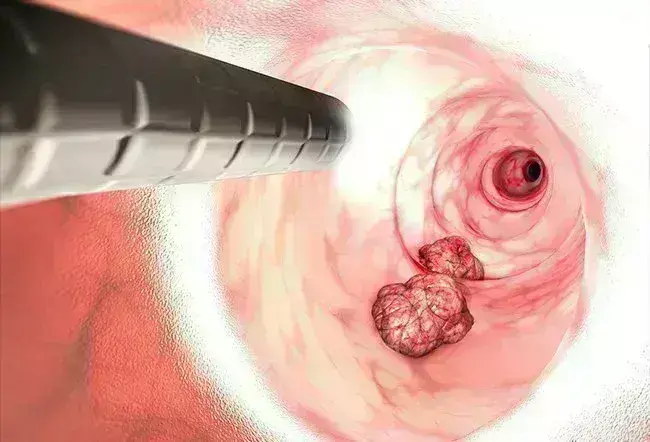- Home
- Medical news & Guidelines
- Anesthesiology
- Cardiology and CTVS
- Critical Care
- Dentistry
- Dermatology
- Diabetes and Endocrinology
- ENT
- Gastroenterology
- Medicine
- Nephrology
- Neurology
- Obstretics-Gynaecology
- Oncology
- Ophthalmology
- Orthopaedics
- Pediatrics-Neonatology
- Psychiatry
- Pulmonology
- Radiology
- Surgery
- Urology
- Laboratory Medicine
- Diet
- Nursing
- Paramedical
- Physiotherapy
- Health news
- Fact Check
- Bone Health Fact Check
- Brain Health Fact Check
- Cancer Related Fact Check
- Child Care Fact Check
- Dental and oral health fact check
- Diabetes and metabolic health fact check
- Diet and Nutrition Fact Check
- Eye and ENT Care Fact Check
- Fitness fact check
- Gut health fact check
- Heart health fact check
- Kidney health fact check
- Medical education fact check
- Men's health fact check
- Respiratory fact check
- Skin and hair care fact check
- Vaccine and Immunization fact check
- Women's health fact check
- AYUSH
- State News
- Andaman and Nicobar Islands
- Andhra Pradesh
- Arunachal Pradesh
- Assam
- Bihar
- Chandigarh
- Chattisgarh
- Dadra and Nagar Haveli
- Daman and Diu
- Delhi
- Goa
- Gujarat
- Haryana
- Himachal Pradesh
- Jammu & Kashmir
- Jharkhand
- Karnataka
- Kerala
- Ladakh
- Lakshadweep
- Madhya Pradesh
- Maharashtra
- Manipur
- Meghalaya
- Mizoram
- Nagaland
- Odisha
- Puducherry
- Punjab
- Rajasthan
- Sikkim
- Tamil Nadu
- Telangana
- Tripura
- Uttar Pradesh
- Uttrakhand
- West Bengal
- Medical Education
- Industry
BMI and pelvimetry may help predict duration of laparoscopic resection of low and middle rectal cancer

Colorectal cancer is the third most common cancer and the second leading cause of cancer-related death among all malignant tumors in the world. Total mesorectal excision (TME) is the standard of radical surgery for rectal cancer and directly affects the local recurrence and overall survival.
Researchers have found in a new study that BMI and pelvimetry may help predict the duration of laparoscopic resection for low and middle rectal cancer.
The study has been published in the BMC Surgery.
In rectal cancer surgery, recent studies have found associations between clinical factors, especially pelvic parameters, and surgical difficulty; however, their findings are inconsistent because the studies use different criteria. This study aimed to evaluate common clinical factors that influence the operative time for the laparoscopic anterior resection of low and middle rectal cancer.
In total, 214 patients with a mean age of 60.3 ± 8.9 years were divided into two groups: the long operative time group (n = 105) and the short operative time group (n = 109).
Univariate analysis revealed that the male sex, a higher body mass index (BMI, ≥ 24.0 kg/m2), preoperative treatment, a smaller pelvic inlet (< 11.0 cm), a deeper pelvic depth (≥ 10.7 cm) and a shorter intertuberous distance (< 10.1 cm) were significantly correlated with a longer operative time
However, only BMI and pelvic inlet were independent predictors of operative time. Moreover, the rate of anastomotic leakage was higher in the long operative time group
Teng, W., Liu, J., Chen, M. et al. BMI and pelvimetry help to predict the duration of laparoscopic resection for low and middle rectal cancer. BMC Surg 22, 402 (2022).
https://doi.org/10.1186/s12893-022-01840-4
Dr. Shravani Dali has completed her BDS from Pravara institute of medical sciences, loni. Following which she extensively worked in the healthcare sector for 2+ years. She has been actively involved in writing blogs in field of health and wellness. Currently she is pursuing her Masters of public health-health administration from Tata institute of social sciences. She can be contacted at editorial@medicaldialogues.in.
Dr Kamal Kant Kohli-MBBS, DTCD- a chest specialist with more than 30 years of practice and a flair for writing clinical articles, Dr Kamal Kant Kohli joined Medical Dialogues as a Chief Editor of Medical News. Besides writing articles, as an editor, he proofreads and verifies all the medical content published on Medical Dialogues including those coming from journals, studies,medical conferences,guidelines etc. Email: drkohli@medicaldialogues.in. Contact no. 011-43720751


